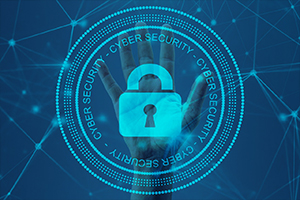Cybersecurity Best Practices
Posted By Remote Techs On 12-August-2023

As a representative of Remote Techs, I will share expert insights and practical best practices to fortify your organization’s defenses and ensure a safe digital environment in this digital age where data and technology reign supreme. You cannot emphasize enough the importance of cybersecurity to protect your business from ever-evolving cyber threats.
1. Develop a Comprehensive Security Policy
The foundation of a robust cybersecurity strategy lies in a well-defined security policy. Your organization should establish a comprehensive document outlining protocols, guidelines, and responsibilities for employees, contractors, and vendors. The policy must address critical areas like data protection, access controls, password management, incident response procedures, and acceptable usage of company devices and networks.
2. Regular Employee Training
Remote Techs empowers its workforce with knowledge by investing in regular cybersecurity training for all staff members. Through this training, the company significantly reduces the likelihood of successful phishing attempts, social engineering, or accidental data breaches. This approach enables employees to stay vigilant and equips them to detect and thwart potential threats.
3. Use Multi-Factor Authentication (MFA)
Passwords alone are no longer sufficient to protect sensitive information. Implementing Multi-Factor Authentication (MFA) adds an extra layer of security by requiring users to provide two or more forms of identity verification before accessing accounts or systems. Remote Techs minimize the risk of unauthorized access and compromises by doing so.
4. Regular Software Updates and Patches
Outdated software and unpatched vulnerabilities are low-hanging fruits for cybercriminals. Remote Techs advises keeping all software, applications, and operating systems up-to-date with the latest security patches and updates. Regularly checking for security fixes and promptly applying them can prevent potential breaches and exploits.
5. Secure Network and Data Encryption
Contact Remote Techs For IT Support Los Angeles Today
We provide comprehensive, tailored solutions ensuring smooth and secure operations. Trust our expertise to empower your business for growth and resilience.
Contact UsRemote Techs emphasizes that it (Remote Techs) must encrypt data in transit and at rest to prevent unauthorized access. Remote Techs emphasizes using robust encryption protocols for sensitive data, whether Remote Techs transmits it through email, stores it on servers, or shares it via cloud services. Encryption is a powerful safeguard against data theft and ensures that even if attackers manage to intercept the data, they (attackers) cannot read or use it.
6. Regular Data Backups
Data loss due to cyber incidents can be disastrous for any organization. Implementing a regular data backup and recovery plan is essential to ensure business continuity in the face of a cyber attack or hardware failure. Remote Techs recommends automated and encrypted backups to secure critical information, making it accessible when needed.
7. Limit Access Privileges
Only some employees require access to all data and systems. Implementing the principle of least privilege helps minimize potential damage in a security breach. Restricting access privileges to only what is necessary reduces the attack surface and protects sensitive information from falling into the wrong hands.
8. Conduct Regular Security Audits
Periodic security audits are crucial for assessing your organization’s cybersecurity posture. Remote Techs advises conducting thorough assessments, vulnerability scans, and penetration tests to proactively identify potential weaknesses and address them. These audits can help fine-tune your security policies and ensure compliance with industry standards.
As a leader in the tech industry, Remote Techs understands the significance of a strong cybersecurity posture. Following these best practices can reinforce your organization’s resilience against cyber threats and instill confidence in your stakeholders. Cybersecurity is an ongoing journey, and continuous improvement and vigilance are the keys to safeguarding your digital landscape. Investing in cybersecurity today can save you from the potentially devastating consequences of a data breach tomorrow. Stay secure, stay vigilant, and together, let’s build a safer digital world.